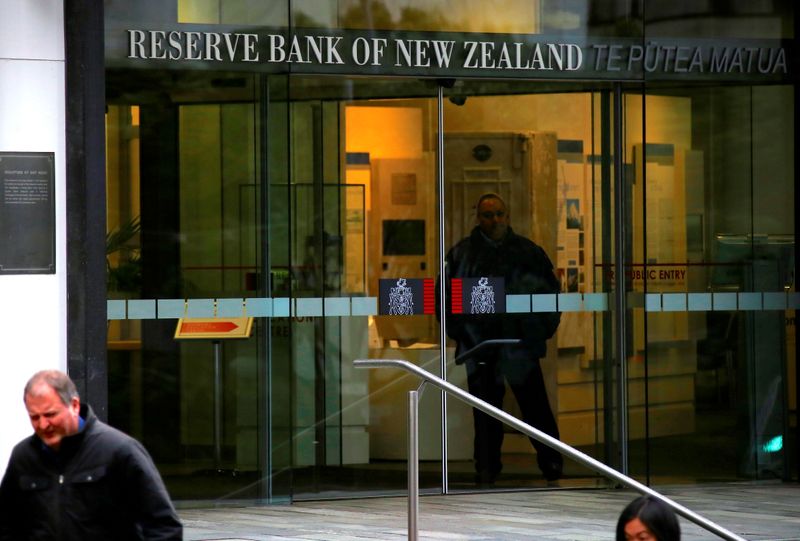By Praveen Menon
WELLINGTON (Reuters) - New Zealand's central bank is likely to hold rates steady at its policy meeting on Wednesday amid signs of improvement in the economy, and is expected to lay out its plans for future policy action to soften the impact from the pandemic.
All 13 economists polled by Reuters predict the official cash rate (OCR) will remain unchanged at 0.25% this year, and just three see rates dropping into negative territory in 2021.
New Zealand shocked markets with a 75 basis point cut in March as the coronavirus surfaced in the country, but has left it unchanged since, with the health crisis quickly controlled and restrictions on the economy were lifted.
Markets expect the Reserve Bank of New Zealand (RBNZ) to stick to a dovish tone by expanding quantitative easing (QE) beyond the current NZ$60 billion ($40.13 billion) and keep alternative monetary policy tools, including negative rates, firmly on the table.
"We expect that an expansion of the current QE programme will remain the RBNZ's first choice for providing stimulus at the August Monetary Policy Statement, given that it is effective with the least costs," said ANZ Senior Economist Liz Kendall.
"But the RBNZ's sentiment suggests they are willing to do much more beyond QE if required," she said, adding that QE could be increased to NZ$90 billion over 18 months.
RBNZ promised to outline its readiness to deploy alternative monetary policy tools in its August statement. Any indication that negative rates is its preferred next step could step up pressure on the kiwi dollar.
Recent data had indicated that the economic impact of the coronavirus pandemic was not as dire as forecasted, with unemployment rates falling, inflation picking up and the housing market being resilient.
Business confidence also improved as a hard and early response by the government had kept coronavirus infections out of the community and allowed businesses to return.
But unknowns remain, with the borders still shut, hurting New Zealand's large tourism industry, and fears of a second wave of cases looming. The government expects the unemployment rate to rise in the coming months.

"Given the massive uncertainties inherent in any forecast at present, there really isn't a compelling reason to change the stance of monetary policy," said Westpac Chief Economist Dominick Stephens.